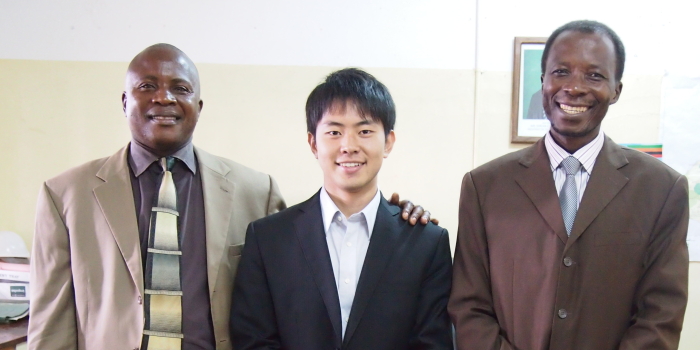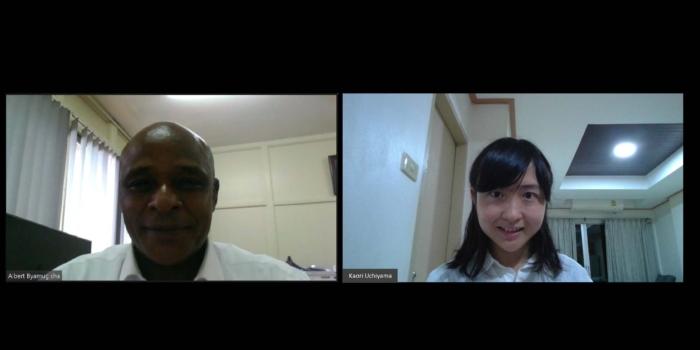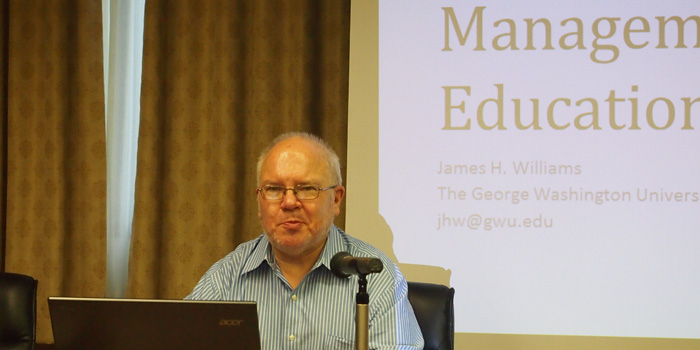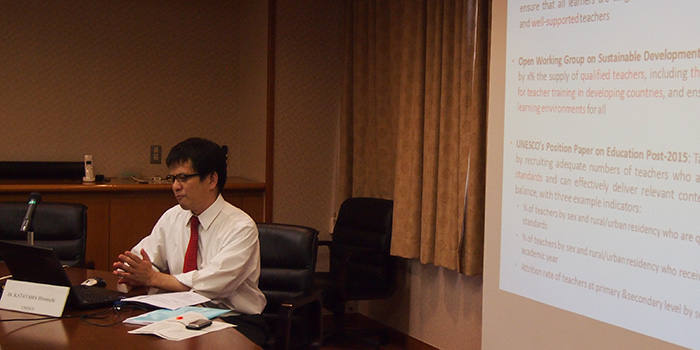During February 1st and 27th, the author conducted an internship at JICA Zambia Office. I participated in the end-line survey of STEPS project (Strengthening Teachers’ Performance and Skills through School-based Continuing Professional Development Project). I was dispatched to Muchinga Provincial Education Office, and visited secondary schools to monitor teachers’ lessons and collect questionnaires from teachers and pupils. In addition, along with end-line survey I was allowed to conduct research about my topic. Specifically I conducted interviews and data analysis about teacher’s behavior in classroom, using the data of base-line survey of STEPS project.
First, I will explain about the place to work. I was dispatched to Muchinga Provincial Education Office of Chinsali, which is the capital of Muchinga Province of Zambia. Muchinga Province is a relatively new province, which is departed from Northern Province and located at North-Eastern part of Zambia. Therefore, Chinsali is also expected to get bigger.
Second, I will show what I did. During this internship, I and my colleagues at Muchinga PEO participated in the end-line survey of STEPS project. STEPS project aims to encourage math and science teachers of secondary schools to do lesson study, and tries to improve their pedagogical skills. Lesson study is the activity, consisting of demo-lesson by one teacher; observation of the demo-lesson by colleague teachers; discussion and advice for the teacher. Through the end-line survey, we monitored lessons and identified how the teacher changed through lesson study activity. Teachers and their lessons were already monitored once in the base-line survey in 2012. So, we monitored how they improved or not in 3 years.

With project members, at Muchinga Privincial Office
One of the tough works was managing the schedule of school visit. In case that teachers changed the schools to work, we had to identify which school they were in, and when they teacher the subject. In addition, we had to monitor the lessons with at least five people in order to ensure quality, so it was quite difficult to coordinate the schedule of busy members.
Along the end-line survey, I got an opportunity to do my own research. I had interest in how teacher’s behavior has effect on pupil’s satisfaction for learning, and implemented data analysis and interviews. I did regression analysis using the data of base-line survey, and ensured the findings with interviews for teachers and classroom observations. As a result, teacher’s effective questions and assignments, and adequate usage of teaching materials have positive effect on pupil’s satisfaction. In addition, teachers who practice such activities improved their scores of the survey.

At the interview with a teacher in Endline Survey
As a conclusion, I will report what I have learned in this internship. First, I learned the importance of making good relationship with local staffs. If we can trust each other, we can work more collaboratively and efficiently. Using local language, eating local food with colleagues, understanding and respecting their culture, can help me make good relationship with them. Second, it was fruitful for me to get connection with Zambian and Japanese professionals. Since I worked at PEO in Chinsali, I could cover almost all the decision makers of Muchinga Province. In addition, I got an opportunity to meet with officers of Zambia Ministry of Education and JICA. I hope this connection will help me develop my research. Third, it was great experience for me to work at the forefront of development project. I could learn which stakeholder participates in the project, how they work on the project, and how to manage the project with them.
I do really appreciate for my academic advisor, Professor Keiichi Ogawa, for encouraging me to apply and participate to this internship. I would also like to send gratitude to officers and professionals of JICA Zambia office, and colleagues of Muchinga Provincial Education Office.
Authored by Takeru Numasawa
Related Link: http://www.jica.go.jp/zambia/office/information/event/20150323_01.html
Related








